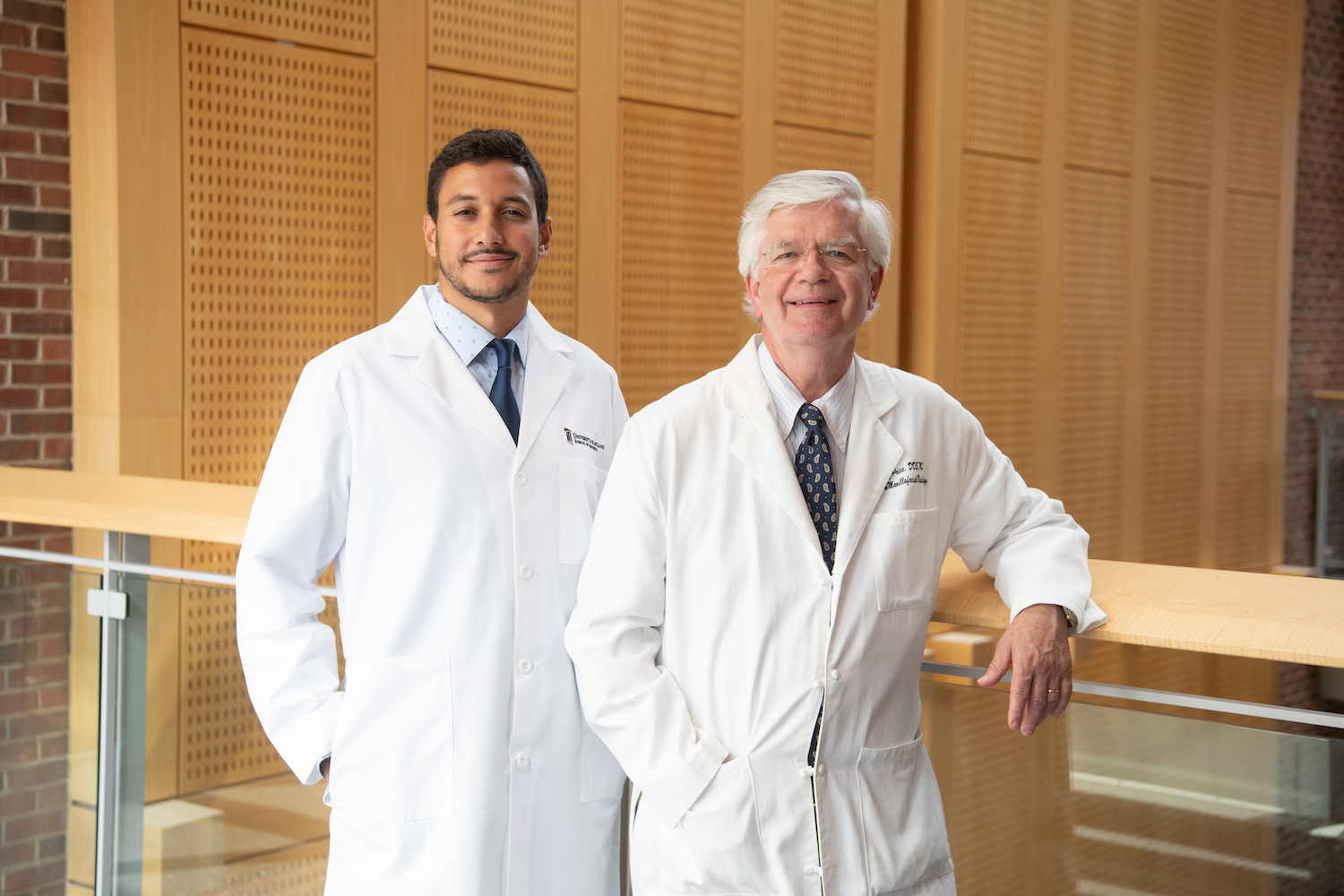Leaping into the Future: School of Dentistry Establishes Division of Artificial Intelligence Research
August 07, 2024 Holly Selby
Learn about the division, which includes a multidisciplinary team of faculty, postdoctoral researchers, and doctoral and dental students, in the latest issue of “CATALYST” magazine.
Photo: Ahmed Sultan (left), BDS, PhD, and Jeffery B. Price, DDS, MS
On the seventh floor of the University of Maryland School of Dentistry (UMSOD), Ahmed Sultan, BDS, PhD, and Jeffery B. Price, DDS, MS, are working to expand the boundaries of artificial intelligence-assisted diagnostics to develop new ways of diagnosing diseases and creating dental and dental predictive models with greater transparency, precision, and, ultimately, better patient outcomes.
It is an ambitious and potentially transformative project — part of UMSOD’s new Division of Artificial Intelligence (AI) Research. Housed in the Department of Oncology and Diagnostic Sciences (ODS), it is directed by Sultan, assistant professor, program director of Oral and Maxillofacial Pathology Residency, and co-director of Oral Medicine Programs at the University of Maryland Marlene and Stewart Greenebaum Comprehensive Cancer Center and UMSOD.
The division will include a multidisciplinary team of faculty, postdoctoral researchers, and doctoral and dental students, co-directed by Price, clinical professor and director of the Division of Oral Radiology, ODS.
“At the School of Dentistry, we have access to enormous data sets of invaluable information, including that of rare oral diseases and cancers,” Sultan said. “By mining that data and collaborating with the multidisciplinary teams of experts at UMSOD, the University of Maryland School of Medicine, and our external computer vision AI experts, we can explore and expand the potential of AI in oral and maxillofacial medicine, pathology, and radiology.”
Developing AI models that can explain how they reach their decisions is another priority for the division, Price said. Only then can practitioners confidently apply AI findings and improve their own diagnoses and treatment plans. He noted that while AI is used increasingly in the medical fields, a 2022 survey conducted by the Pew Research Center found that 60 percent of the 11,000 respondents would not feel comfortable if their health care providers relied on artificial intelligence to diagnose and propose treatments.
“Our mission statement includes the phrase ‘explainable, interpretable, and transparent AI,’ ” Price said. “AI algorithms can be developed so that the program will explain how it makes its decisions. And by creating interpretable or explainable AI models, we will be able to allow clinicians to see what and how predictions are made by AI, and this will build trust.”
Read more about the new UMSOD division in the latest issue of CATALYST.
You can read the Spring 2024 issue of CATALYST magazine, which highlights UMB's new “Climate Change, Health, and Society” elective; Carin Cardella, public information officer for UMB Police and Public Safety who has answered the call during state emergencies; the Francis King Carey School of Law celebrating 200 years; new Health Sciences and Human Services Library Dean Emily Hurst and Chief Philanthropy Officer Greg Bowden; Fahren Nipple, autopsy assistant for the Office of the Chief Medical Examiner and assistant program director for the Master of Science in Forensic Medicine at the Graduate School; and much, much more!